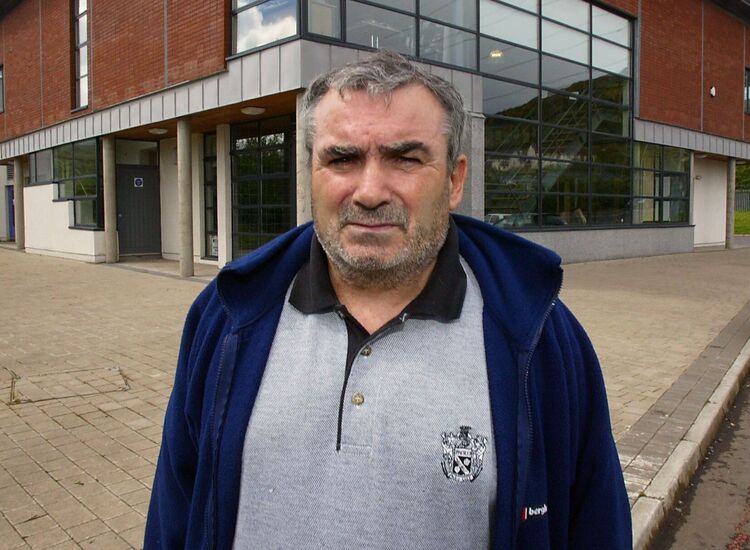[caption id="attachment_70675" align="aligncenter" width="600" caption="Finbar Furey."]
Finbar Furey was in Spain last week, where he picked up a new set of reels. He was practicing them at home in Ireland on his pipes when his phone rang. It was me, calling from the Bronx. I had to tell him how delighted I was that his new album “Colours,” had landed in my mailbox. And knowing what a colorful man Finbar is, I wanted to hear straight from the horse’s mouth how the album came to be.
I felt bad that I’d interrupted his piping, but a few minutes into the conversation I realized that he was just as excited to tell me about his new project as I was to be talking to the legendary musician. He was so generous with his time, so vibrant in his storytelling, and so full of passion for music, that an hour-long conversation passed by in the blink of an eye, and before I knew it I had pages of notes. Book recommendations, stories from his years the road, facts about the history of Irish music, and wonderful snippets of insight into what makes the songs on the new album so special to Finbar.
Our conversation took me on a journey of how the album came to be. From his childhood learning pipes from his father and banjo from his mother, to his memories of the 1960s – a decade when Furey was deeply inspired by music, and his difficult break away from his brother’s band in the 1990s. He told me that he’s been carrying most of the songs on the album with him for years, and when he finally had the chance he recorded the album in just eight days.
We talked about some of my favorite songs on the album. There’s the charming duet with Furey’s long- time friend, Mary Black, “Walking with My Love,” a really lovely version of the classic song “Dan O’Hara,” and the most heartfelt rendition of Phil Coulter’s The Old Man, that I have ever heard. Finbar Furey sounds so sincere when he sings the song that I was not surprised to learn that the song was actually written by Phil Coulter for Ted Furey, Finbar’s father. Furey always wanted to record a version of the song that would allow listeners to hear and feel the happiness that Furey feels when he thinks about his father.
That desire to make his audience feel good definitely shines through on almost all of the songs on the album, and when I ask him about that he answers “to me Irish music is wild, gorgeous, free of heart, not dreary.” Then he referenced the very distinctive rhythmic groove that runs through all of the songs album. He couldn’t explain how exactly he achieves his sound, but he said that he was born to play Irish music in this way. For Finbar Furey, “Colours” was his chance to follow his own instincts, tell stories through music in his own voice, play to his own rhythm, and finally put his signature stamp on songs that he has been carrying with him for years.
Although he reveals that his musical independence on the album is a great source of pride and satisfaction for him, he also leaves me with some musical words of wisdom from his father. Furey laughed as he told me “I wrote ‘The Lonesome Boatman,’ but my father always told me that I don’t own it. He always reminded me that the music belongs to the heritage. We borrow the music and add to it, but we don’t own it.”
You can pick up your copy of “Colours” at www.valley-entertainment.com, and look forward to some Finbar Furey concerts in New York City this summer.








